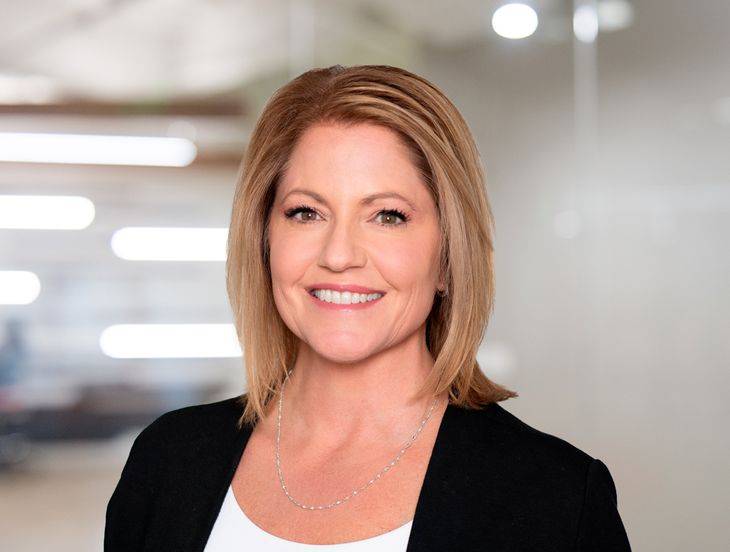Feds Offer Guidance on New $100K H-1B Fee and Provide Relief to Many Employers: What You Need to Know Now
Insights
10.22.25
Federal immigration officials have finally clarified key details about the controversial $100,000 H-1B visa fee announced last month – and Monday’s update provides some relief for employers. The new guidance from US Citizenship and Immigration Services (USCIS) significantly narrows which petitions are subject to the fee, offering relief for most employers sponsoring current or recent international workers. The guidance also provides details about who how to pay the fee, who is exempt, and how to request an exception. Here’s what you need to know about this week’s developments.
Background: The $100,000 H-1B Fee Explained
As we detailed in our prior Insight, President Trump issued a September 19 proclamation imposing a $100,000 fee on new H-1B petitions. The administration framed it as an anti-abuse measure, but employers warned it could upend critical hiring pipelines, particularly in technology, healthcare, and higher education.
USCIS has now clarified several key points that determine whether your organization will actually need to pay the new fee.
Who is Exempt
The new guidance offers significant relief for employers sponsoring workers already in the U.S. The $100,000 fee does not apply to:
- Recent international graduates in F-1 status applying for a change to H-1B.
- Current H-1B holders applying for an amendment, change of employer, or extension.
- Workers departing and reentering the US later on an existing, valid H-1B visa.
- Petitions filed before September 21, 2025.
|
🔑 Key Takeaway Employers hiring foreign professionals already in the country – especially through university pipelines – are shielded from the new cost. Most existing workers are unaffected. Only new hires outside the U.S. are covered by the $100,000 fee. |
Who Must Pay the Fee
According to the latest guidance, the $100,000 charge applies only to new H-1B petitions filed on or after September 21, 2025, for workers outside the United States who do not currently hold a valid H-1B visa.It also applies to petitions that:
- Request consular notification, port-of-entry notification, or pre-flight inspection for a foreign national in the US
- Are denied because the beneficiary is deemed ineligible for a change of status or extension (for example, if the worker is out of valid status or departs the U.S. before adjudication).
|
🔑 Key Takeaway The $100,000 fee targets new overseas hires – not your current workforce. Employers expanding globally or filling roles from abroad are most at risk of higher costs. |
How to Pay
Employers required to pay must do so through the federal government’s online portal at pay.gov. USCIS requires that proof of payment (or proof of an approved exception) accompany every petition.
|
🔑 Key Takeaway Document carefully. Always include proof of payment or exception with every petition. The guidance says that petitions submitted without documentation of payment or exemption will be denied outright. |
“Extraordinarily Rare” Exceptions
The USCIS confirmed that exceptions will be granted only in very limited cases. To qualify, employers must demonstrate that:
- The worker’s presence is in the national interest;
- No qualified American worker is available;
- The individual poses no risk to US security or welfare; and
- The fee would “significantly undermine the interests of the United States.”
Requests for exception must be submitted via email to H1BExceptions@hq.dhs.gov with supporting documentation.
|
🔑 Key Takeaway USCIS emphasized that such exceptions will be “extraordinarily rare” and subject to the Secretary of Homeland Security’s discretion. You’ll want to act with caution when hoping to achieve such exceptions when you map out your hiring strategy. |
What’s Next
Multiple lawsuits are pending in federal court challenging the proclamation’s legality and the administration’s authority to impose the fee without congressional approval. The prime piece of litigation that most observers are following was filed last week by the US Chamber of Commerce. For now, however, the rule remains in effect – and employers filing new H-1B petitions for foreign national candidates who are abroad must comply unless and until a court orders otherwise.
|
🔑 Key Takeaway The litigation seeks an injunction against enforcement, and, if granted, could quickly upend the status of things rather quickly. Fisher Phillips will continue to monitor the litigation and any further agency developments that could impact H-1B program operations and costs, so we recommend you sign up for our Insight System to ensure you receive critical updates. |
Conclusion
For support, please contact your Fisher Phillips attorney, the authors of this Insight, or any member of our Immigration Practice or Technology Industry Team. Make sure you are subscribed to Fisher Phillips’ Insight System to receive the most up-to-date information directly to your inbox.
Related People
-
- Jocelyn Campanaro
- Partner
-
- David S. Jones
- Regional Managing Partner
-
- Angelica M. Ochoa
- Partner
-
- Shanon R. Stevenson
- Partner



